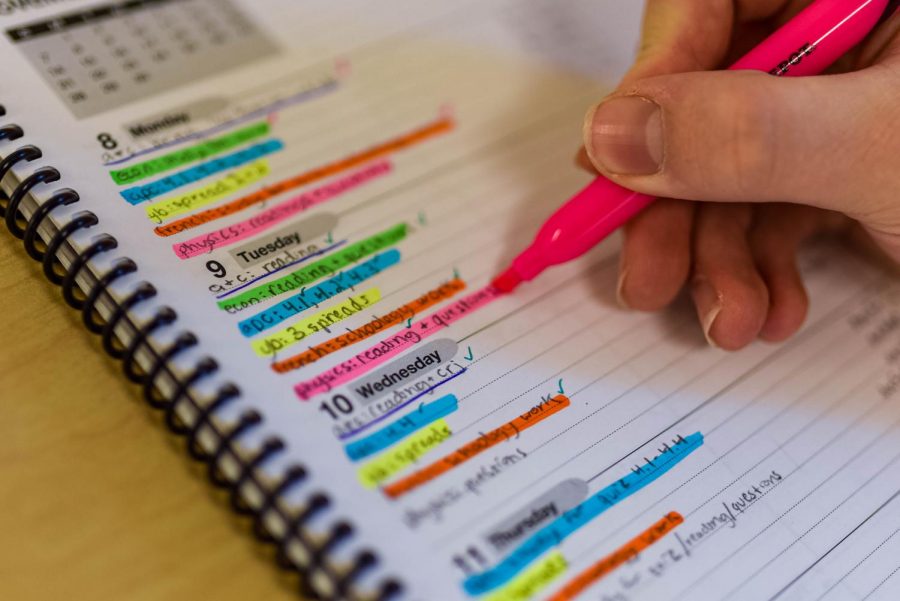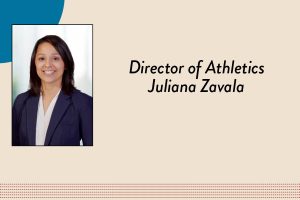Workload expectations to be included in the Program of Studies
A student crosses off items from their planner. The next Program of Studies will attempt to accurately display how much work students should expect to do for each class.
December 12, 2021
U-High teachers will be updating the next Program of Studies to try to accurately display how much work students should expect to do for each class, but the ways they do this will depend on the department.
According to fine arts department chair Sunny Neater, teachers in the fine arts department will include a short explanation of the workload expectations underneath the course description for each class.
“We’re hoping that by not embedding the workload description in the body of the text, students will be able, with their advisers and with their counselors and with their families, to better scan the Program of Studies and find something that’s balanced in their course load,” Ms. Neater said.
For art classes that require more work outside of class time, such as Beginning Photography and Filmmaking, Ms. Neater said that the different habits and interest levels of students will make it difficult to accurately estimate how much time a student should expect to spend working outside of class. She encourages students to talk to their teachers if they are overwhelmed.
“I really want to encourage students to let teachers know and not to feel weird or bad about it,” Ms. Neater said. “Just be like, ‘Hey, this work is taking me like two-and-a-half, three hours a night. What should I do differently? Are there smarter ways to work? Can I manage this in a different way so that this isn’t dominating my life?’”
Similar to Ms. Neater, science department chair Zachary Hund said the speeds at which different students work as well as the differences in pacing depending on the teacher make it impossible to say how much time students will spend working at home. Because of this, the science department will focus on making the course descriptions more clear instead of trying to estimate a specific time commitment.
“We wanted students again to really understand what they were signing up for, update any of the descriptions in terms of anything that’s changed with content and projects, and think about prerequisites and what’s been indicative of a successful student in a given class,” Dr. Hund said.
Sophomore Mason List said he has experienced many classes already in high school where the workload was heavier than he expected when he registered.
“It happens all the time,” Mason said. “Even at times I’ve gone into a class with high expectations and I’ll still end up with more work than I thought it was.”
Mason said he expects that changes in the Program of Studies will resolve most of the problems he has choosing classes. He said he thinks receiving the expectations from the departments directly will be more reliable than hearing them from former students.
“I’d say the only information that I ever really get about the potential workload of a class would be through my siblings or their friends,” Mason said. “Sometimes it’s accurate, but not enough that I can usually trust it.”




























































